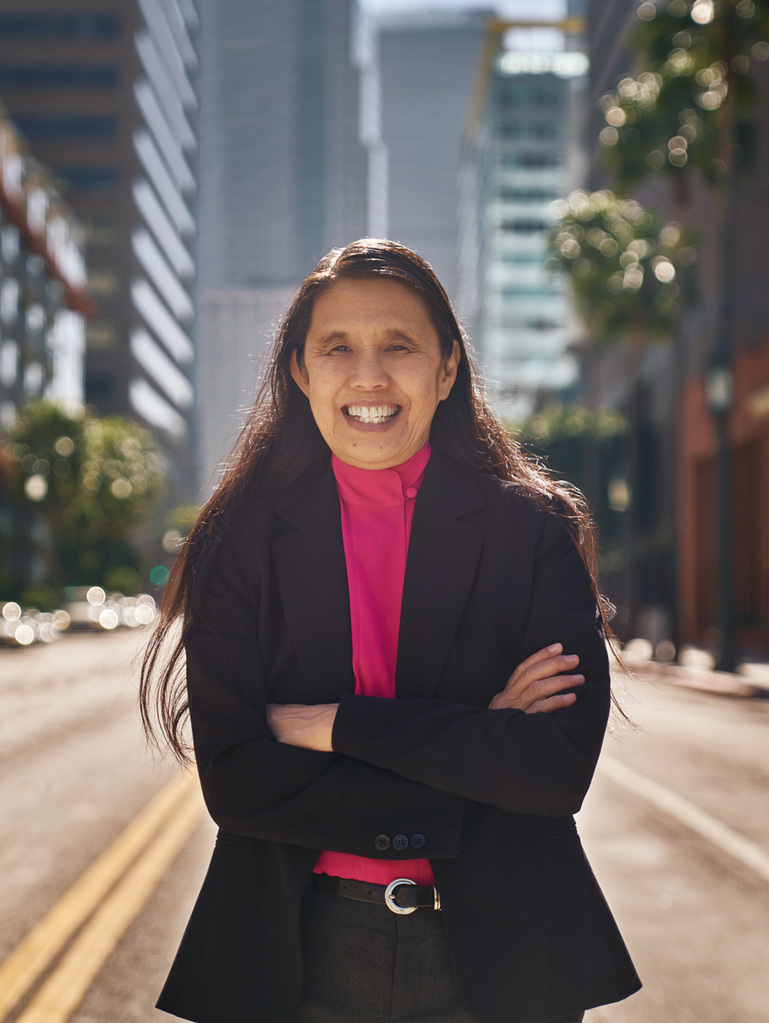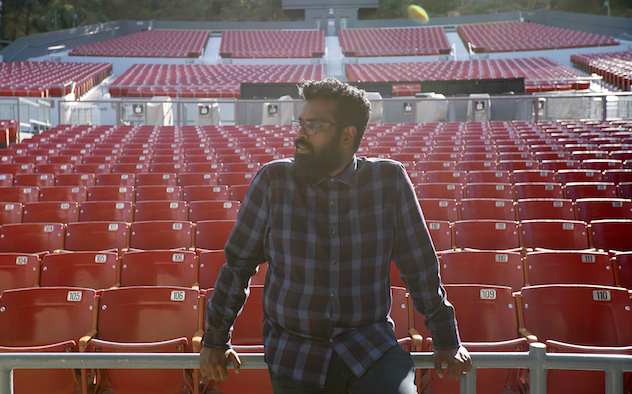An activist and community organizer for over 40 years, Doreena Wong knows a thing or two about what it takes to fight injustice.
“You have to feel good about yourself and have enough self-esteem and self-respect to be able to then go outside of your own community to organize,” she said. “It took me a while to get to a place where I felt comfortable being myself and express who I was. I would like to make it a lot easier for others who feel marginalized or different so that they can be whoever they want to be without having to go through all of the heartache.”
Wong is the founder of API Equality-LA, one of the region’s largest LGBT rights and racial justice organizations, and project director of Asian Americans Advancing Justice’s Health Access Project, which helps Asian Americans and Pacific Islanders gain access to health care through outreach, advocacy and education.
Several social movements and the roles she played in bringing about change in the past have shaped her perspective today as an advocate of LGBT, women’s and human rights.
Growing up in San Francisco in the 1960s, Wong slowly became aware of how her race and sexual orientation set her apart from her peers. She distinctly remembers being 13 years old, struggling to come to terms with her feelings of “Otherness” and craving community. Having conservative immigrant parents made Wong hesitant to live honestly for fear of familial rejection. “They’re definitely traditional,” she said of her parents. “[coming out to them] was a hard process because it took me a couple of years to feel comfortable coming out just to myself. I just didn’t feel comfortable enough because I knew they didn’t want to know.”
As a college student in the anti-Vietnam War period, however, she was motivated to reach out to others like her. Wong went on to join several social justice groups and movements, even founding API, LGBT and women’s rights groups such as Asian American Feminists and the Asian Pacific Lesbian Network (now the Asian and Pacific Islander Queer Women and Transgender Coalition). “It seemed like the only way to get community back then was to create it,” she said.
When it became clear to Wong that coalition politics was her calling, she decided to go to law school to become a more effective advocate for her community. She later moved to Los Angeles with her partner and continued her community organizing work in Los Angeles’ many diverse neighborhoods.
“There’s a need for a lot of different groups to support different communities,” Wong said about her work organizing different groups to service the unique needs of each community. “People should not only be tolerated but actually [allowed to] thrive and feel proud not only of themselves but of their relationships and their partners, spouses, husbands, wives, their families and their kids.”
With the Health Access Project, Wong feels particularly passionate about helping underserved communities by helping them gain access to effective and quality health care. Wong’s clients are most often immigrants who must deal with cultural and linguistic barriers when it comes to getting healthcare. She understands that the intersectionality of race, color, national origin, sexual orientation, ability and income can further complicate health care access issues. Many of Wong’s clients have problems communicating with providers who cannot speak their language or come from places where the health care system is very different from that of the United States, and confusion discourages them from getting the care they need.
Wong has seen the fight for justice’s many highs and lows, but she remains hopeful about the future. “I guess maybe I’m an eternal optimist,” she said. “I’m always hopeful because I’ve seen such change just in my lifetime. It’s amazing to me. To me, anything is possible because I’ve seen it.”
Despite everything Wong has done, she said she is the one who ought to be thankful, and her overwhelming feelings of gratitude are what push her to continue fighting for justice.
“What I’ve gained has far surpassed what I put in,” she said. “I feel pretty privileged and honored to be able to do this work. I’m doing work that I can go home and feel good about. The least I can do is my small part so I can make a small difference.”
This article is a part of a series of portraits and stories, in celebration of Asian Pacific American Heritage Month, on API women who use their perspectives and voices to speak up and impact their communities. Read more here.







